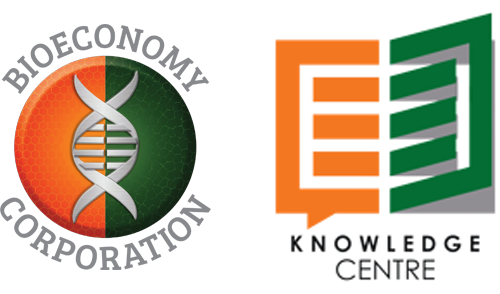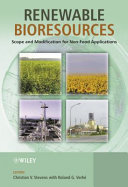Renewable Bioresources
| Series: | Industrial biotechnology |
| Publisher: | Wiley |
| Subject: | Environmental chemistry--Industrial applicati, Renewable natural resources, Chemical industry--Environmental aspects, Biopolymers. |
| Authors: | Christian V. Stevens , Roland Verhé |
| Pages: | 310 pages |
| Binding: | Hardcover |
| ISBN: | 9780470854464 |
| Call No: | TP 155.2 E58 R46 2004 |
Renewable Bioresources: scope and modification for non-food applications is the first text to consider the broad concept of renewable materials from the socio-economic aspects through to the chemical production and technical aspects of treating different raw products. The text sets the context of the renewables debate with key opening chapters on green chemistry, and the current situation of US and EU policy regarding sustainability and industrial waste. The quantitative and technical scope and production of renewable resources is then discussed with material looking at integral valorisation, the primary production of raw materials, downstream processing, and the identification of renewable crop materials. The latter part of the book concludes with a discussion on the uses for renewable materials such as carbohydrates, woods, fibres, biopolymers, lipids and proteins in different industrial applications, including a key chapter on the high value-added industries.
- Covers the broad concept of renewable resources from different points of view.
- Takes readers through the identification, production, processing and end-applications for renewable raw materials.
- Considers and compares EU and US renewable resources and sustainability objectives.
- Devotes one chapter to green chemistry and sustainability, focussing on the green industrial processes.
This is an essential book for upper level undergraduates and Masters students taking modules on Renewable Resources, Green Chemistry, Sustainable Development, Environmental Science, Agricultural Science and Environmental Technology. It will also benefit industry professionals and product developers who are looking at improved economic and environmental means of utilising renewable materials.

